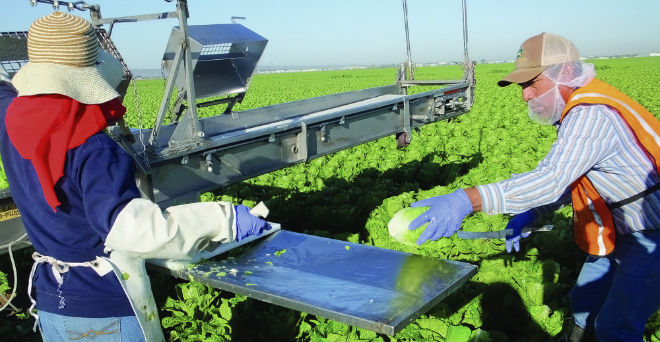

Nov 7, 2016New overtime rules leave California growers wondering if they’ll survive
On Sept. 12, California Gov. Jerry Brown signed a bill that will phase in new overtime rules for the state’s agricultural workers beginning in 2019.
The standard overtime threshold for most California industries is eight hours a day, or 40 hours a week, but agriculture has been exempt from that standard. The state’s current overtime threshold for farm workers is 10 hours a day. The new law will lower that threshold gradually from 2019 until 2022, when it will reach the standard eight hours (or 40 hours per week). The governor can choose to suspend the scheduled phase-in for one year if economic conditions are poor, according to United Farm Workers.
Paul Wenger, president of California Farm Bureau Federation, said the agricultural community is “very dismayed” Brown signed the bill.
“Those who work on California farms will see reduced paychecks and have their lives disrupted as these new worker overtime rules come into play,” Wenger said. “(This legislation) only works if California consumers buy California farm products and opt not to buy cheaper food products from sources outside of California.”
Instead of helping them, Brown’s signature will cause farm workers to lose wages, said Tom Nassif, president and CEO of Western Growers. He’s also ignoring economic reality.
“Our farmers compete with farmers in other states and countries with no overtime costs, far lower minimum wages, reliable water supplies and far less regulatory burden,” Nassif said. “California farmers will have no choice but to avoid even higher costs of production and they will utilize a number of strategies, including reducing work shifts and production of crops that require large numbers of employees. The box stores, grocery chains and restaurant companies that buy fresh produce can and will purchase from growers in other states and countries to keep prices down. They don’t care about the high costs of operating in California. Neither, apparently, do a majority of the California Legislature or the governor.”


Even though the new law won’t start until 2019, “we’re pretty scared about what will happen when it does,” said Pete Aiello, who runs Uesugi Farms in Morgan Hill, California, with his father Joe.
Uesugi Farms, which grows thousands of acres of peppers, cabbage, strawberries and other crops, has 254 employees on its payroll, and utilizes labor contractors for several hundred more. The farm will have to cap as many employees as it can at 40 hours a week, but for some roles – harvesters, tractor and truck drivers, etc. – it will be impossible to do that, Aiello said.
“You can’t tell an irrigator, ‘you’re only working forty hours this week,’ and the rest of the time let the crop die,” he said. “The work has to be done when it has to be done.
“If the crop stopped growing after 40 hours, great,” he said. “But the crops keep growing, and our personnel have to keep up.”
With a higher minimum wage than any other state, and overtime rules other states don’t have to deal with, California’s ag employers are being put at a “distinct competitive disadvantage,” and some of them might not survive, Aiello said.
“They’re cutting our legs off.”
Vegetable and fruit operations like Uesugi Farms are particularly vulnerable because they rely on hand labor. Labor makes up about half of Aiello’s annual operational costs. The new overtime rules will increase those costs substantially, he said.
“It’s going to hurt.”
Outrage
Combine the overtime law with the plan to gradually raise California’s minimum wage to $15 an hour by 2022 – signed into law earlier this year – and the message
is pretty clear to Aiello: “If our state government is not trying to eliminate agriculture, they’re sure doing a good job making it look like they’re trying.”
Manuel Cunha, president of the Fresno- based Nisei Farmers League, repeated Aiello’s sentiments emphatically. The California government has no “respect for agriculture, or farm workers, or farm communities, or business communities in rural areas,” he said.
Growers can’t afford the new overtime rules. As a result, workers are going to lose hours and wages and be forced to work two or three jobs or leave the state. The impact will be huge, Cunha said.
California growers somehow have to compete against other states, even while hobbled by their state’s crippling regulatory environment. Cunha counted 74 different agencies that regulate the ag industry in California, from the federal to the local level. Meanwhile, “we have legislators who don’t even know how the new overtime rules might affect them, he said.
“They have declared war on farmers,” Cunha said, but “farmers will no longer sit around. We’re not going to take anymore of it. That’s all I say.”
— Matt Milkovich, managing editor














